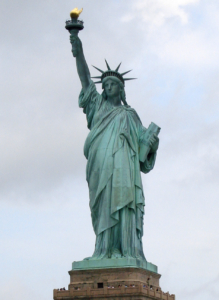PA Health Law Project Newsletter
The Pennsylvania Health Law Project has published its February 2020 newsletter Health Law News.
 Included in this month’s edition are articles about:
Included in this month’s edition are articles about:
- Governor Wolf’s proposed FY 2021 Medicaid budget.
- Challenges Pennsylvania Medicaid recipients have encountered obtaining services from their HealthChoices managed care plan and how to address them.
- Implementation of the federal “public charge” regulation and whom it does – and does not – affect.
Read about these subjects and more in the Pennsylvania Health Law Project’s February 2020 newsletter.
 Last August a new Department of Homeland Security regulation took effect that authorized the federal government to reject immigrants’ applications for visas and green cards if their financial situation and employment prospects suggested that they might become a “public charge” and dependent on government safety-net programs like Medicaid and food stamps. A number of groups sued to prevent the rule’s implementation and federal courts imposed an injunction against its enforcement but now the Supreme Court has lifted the last of these injunctions.
Last August a new Department of Homeland Security regulation took effect that authorized the federal government to reject immigrants’ applications for visas and green cards if their financial situation and employment prospects suggested that they might become a “public charge” and dependent on government safety-net programs like Medicaid and food stamps. A number of groups sued to prevent the rule’s implementation and federal courts imposed an injunction against its enforcement but now the Supreme Court has lifted the last of these injunctions. The new Department of Homeland Security regulation, while focused on applicants for entry into the U.S., could have the unintended effect of discouraging legal immigrants from enrolling in Medicaid, CHIP, and other government programs and even lead them to disenroll from such programs out of a mistaken concern that participating in such programs could jeopardize their status as legal immigrants. The Kaiser Family Foundation, in fact, estimates that two to three million people will leave Medicaid and CHIP because of the new regulation.
The new Department of Homeland Security regulation, while focused on applicants for entry into the U.S., could have the unintended effect of discouraging legal immigrants from enrolling in Medicaid, CHIP, and other government programs and even lead them to disenroll from such programs out of a mistaken concern that participating in such programs could jeopardize their status as legal immigrants. The Kaiser Family Foundation, in fact, estimates that two to three million people will leave Medicaid and CHIP because of the new regulation.